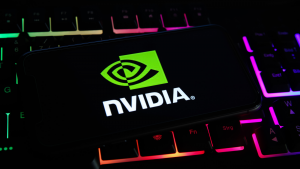Few things are more exhilarating than finding “screaming buys” in the stock market. When everything lines up and you know you’re buying a stock at an insanely low price, the adrenaline flows.
In this column, I have decided to focus solely on tech stocks. Tech stocks have been performing poorly lately. The sector is battered, and it’s due for some good news. As a result, I want to concentrate on the tech space for now.
The S&P 500, a broad measure of the US stock market, has been back on track and climbing lately after falling for several months.. This is good news for the economy as a whole, as the stock market is an important indicator of the overall health of the economy.
In July, inflation climbed by 8.5% year-over- year. That was a slightly slower increase than in previous months, thanks to less elevated gas and energy prices. The markets applauded this news, and tech stocks have perked up.
Regardless of market conditions, many companies can turn themselves around. In this article, we will look at three tech stocks that are rebounding. So if you’re seeking a tech stock to add to your portfolio, keep an eye on these three “screaming buys.”
Lyft (LYFT)

Lyft (NASDAQ:LYFT) is a ride-sharing company that has made waves in the transportation industry. Founded in 2012, Lyft has quickly become a leading player in the space, offering an affordable and convenient alternative to traditional taxis and buses. Lyft also represents a great investment opportunity.
Many tech stocks have dropped this year, including Lyft’s shares. However, the stock may be poised for a turnaround, and the ride-hailing giant’s second-quarter results provided evidence for that idea. Lyft’s Q2 revenue jumped 30% YOY, fueled by increases in active riders and the average dollar amount spent per ride.
The company reported roughly $990 million of revenue last quarter, representing a significant jump from the previous quarter. The number of riders that used Lyft also increased in Q2 versus Q1, and the average amount spent by those riders rose 12% in Q2 versus Q1, reaching almost $50 last quarter.
The average earnings of Lyft’s drivers increased 18% YOY in Q2 to $37 per hour in Q2 As you can imagine, the jump has caused many more drivers to join Lyft
Lyft expects its revenue to grow 20%-23% YOY in Q3, with its adjusted EBITDA anticipated to be between $55 million and $65 million.
Another reason to be bullish on the ride-hailing company is Lyft Media, which provides media to Lyft’s riders. By selling ads on the platform, Lyft will diversify its revenue stream and compete with Uber (NYSE:UBER) in the advertising sector. Lyft’s ad strategy involves in-app advertising, ads on backseat tablets, and smart digital monitors on top of its vehicles.
Lyft is making the right moves, so investors must keep LYFT stock in mind when they’re looking for screaming buys in the current markets.
Fortinet (FTNT)

Fortinet (NASDAQ:FTNT) is one of the top screaming buys in the stock market today for several reasons. Since its IPO in 2009, Fortinet’s stock has increased more than tenfold. It is a leader in cybersecurity and provides a wide range of products and services to keep businesses and government agencies safe from cyber threats.
Fortinet has reported strong financial results in recent quarters and has an exciting future. With its healthy cash flow, its business can continue growing in the long-term, thanks to increased demand for its products in today’s connected world.
Cyberattacks are more and more common, and they can do a great deal of damage to companies, exposing confidential data and financial information, while undermining customers’ trust in firms.
Even during tough economic times, businesses are willing to invest heavily in cybersecurity, so the cybersecurity industry is recession-resistant. That is because businesses always need to protect themselves from cyber threats, and the latter point is why you need to look for quality cybersecurity plays.
Fortinet offers a subscription service, FortiGuard, and a hybrid model. In fiscal Q1, the company ‘s revenue jumped 24% YOY to $583.8 million in Q1. For all of fiscal 2022, Fortinet predicts that its service revenue will come in between $2.640 billion and $2.700 billion.
The need for Fortinet’s solutions will continue to grow as the world becomes increasingly connected. As a result, it’s easy to see why FTNT stock is an attractive investment for those looking for exposure to the cybersecurity sector.
Nvidia (NVDA)

Nvidia (NASDAQ:NVDA) is a well-known technology company specializing in producing graphics processing units (GPUs). These GPUs are used primarily in gaming, professional visualization, and vehicles. Nvidia is one of the leading GPU manufacturers in the world and it has a market share of over 21% in the chips.
In addition, Nvidia is a leader in artificial intelligence and has been instrumental in developing self-driving car technology. The company is benefitting from the growing popularity of gaming, as its GPUs are used in many of the most popular gaming laptops. Nvidia has also aggressively expanded into new markets, such as data centers and automotive. Given all of these tailwinds, Nvidia looks like a great, long-term investment.
However, in the short-run, NVDA will continue to struggle because of negative macroeconomic trends. Nvidia recently reported its Q2 earnings which missed analysts’ average top-line and bottom-line projections. Their expectations for Nvidia for the rest of the year are not great. The sudden drop in consumer demand has been triggered by rampant inflation and the crypto downturn, both of which have reduced consumers’ demand for its graphics cards.
Nvidia is down for now, but NVDA stock is still a great long-term investment, and it is now trading at an attractive entry point. Nvidia’s business model is built for the long term, and Nvidia has a history of bouncing back from temporary setbacks
Moreover, Nvidia has strong fundamentals and usually executes well. So don’t give up on Nvidia just yet; the company is sure to come back with a bang soon enough.
On the publication date, Faizan Farooque did not have (either directly or indirectly) any positions in the securities mentioned in this article. The opinions expressed in this article are those of the writer, subject to the InvestorPlace.com Publishing Guidelines.
